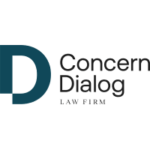-
What are the main methods of resolving disputes in your jurisdiction?
Negotiation. Parties may reach a settlement through equal dialogue and communication. This method is low-cost, efficient, and helps maintain amicable relationships. It is suitable for relatively simple disputes where parties maintain a good relationship.
Mediation. Parties may resolve disputes through mediation, where a neutral third party facilitates voluntary settlement. This process involves assisting parties in bridging their differences through persuasion and education based on laws, regulations, and moral norms. Mediation is broadly classified into two categories. Judicial mediation is conducted by a court during ongoing civil proceedings. It requires the parties’ voluntary participation. Successful judicial mediation results in a legally enforceable mediation agreement. Non-judicial mediation is conducted by entities other than courts, such as people’s mediation committees, administrative organs, industry associations, or commercial mediation institutions. Agreements reached may be submitted to a court for judicial confirmation to obtain enforceability.
Arbitration. Parties may refer their disputes to arbitration administered by an agreed-upon arbitration institution. The tribunal renders a final and legally binding award based on the applicable law, the terms of the parties’ contract, and relevant trade usages. As prescribed by law, certain categories of disputes, such as those concerning marriage, adoption, guardianship, child maintenance, and inheritance, are not arbitrable.
Litigation. Parties may initiate litigation by filing a claim with the court. As a formal and adversarial process, litigation results in a legally binding and enforceable judgment. It serves as the cornerstone mechanism for dispute resolution within the legal system, particularly when consensual methods (such as negotiation or mediation) prove unsuccessful or when the parties require a definitive, authoritative and enforceable ruling.
-
What are the main procedural rules governing litigation in your jurisdiction?
The legal foundation for civil litigation procedures in China primarily derives from the Civil Procedure Law of the People’s Republic of China (CPL) and its associated implementing rules, judicial interpretations, and regulatory documents. These laws and normative instruments form the basic framework of civil procedure and provide detailed legal rules governing various stages of litigation.
CPL is the core legislation regulating civil litigation procedures, which governs the fundamental principles of civil litigation, types of procedures, trial systems, appeal and retrial mechanisms, and compulsory enforcement. The Interpretation of the Supreme People’s Court on the Application of CPL serves as a major judicial interpretation. It addresses ambiguities and practical issues arising from the application of the CPL and supplements its provisions.
-
What is the structure and organisation of local courts dealing with claims in your jurisdiction? What is the final court of appeal?
Chinese court system is structured into four levels, with the Supreme People’s Court at the apex, followed by three tiers of local people’s courts: primary people’s courts, intermediate people’s courts, and high people’s courts. This hierarchical framework ensures the unified application of law and the proper exercise of judicial authority nationwide. China has also established specialized courts with specific subject-matter jurisdiction, including military courts, maritime courts, intellectual property courts, financial courts, and Internet courts. Notable examples are the intellectual property courts in Beijing, Shanghai, and Guangzhou; the financial courts in Beijing and Shanghai; and the Internet courts in Hangzhou, Beijing, and Guangzhou.
The finality of a case adjudication in China is primarily governed by the “two-instance final adjudication system”. While most cases reach finality after a second-instance judgment, certain categories are concluded after the first instance, such as small-claims disputes, cases confirming mediation agreements, and cases concerning the enforcement of secured claims. Parties dissatisfied with a first-instance judgment (or certain rulings) possess the right to appeal to a higher court. Notably, the existence of the trial supervision system means that even a second-instance judgment, although final and binding, may exceptionally be subject to retrial procedures.
-
How long does it typically take from commencing proceedings to get to trial in your jurisdiction?
First-instance cases under the ordinary procedure track are generally concluded within six months from the date of docketing. Under special circumstances, the court president may approve a six-month extension. If still unresolved, a further extension requires approval from the higher-level court.
First-instance cases under small-claim track are generally concluded within two months from the date of docketing. Under special circumstances requiring an extension, the trial period may be extended by up to one month with the approval of the court president.
Second-instance cases are generally concluded within three months from the date of docketing. This period may be appropriately extended depending on case circumstances.
Duration of proceedings can vary significantly. Factors influencing case duration include the nature and complexity of the case, the type of procedure applied, the court’s location, caseload, administrative efficiency, and procedural steps such as jurisdictional objections or pre-trial mediation. Unlike domestic cases, foreign-related cases in China are not subject to the above trial time limits. In practice, the entire process—from first instance through second instance—frequently takes two to three years to conclude.
-
Are hearings held in public and are documents filed at court available to the public in your jurisdiction? Are there any exceptions?
Court hearings in China are conducted publicly as a basic principle, which aims to safeguard judicial transparency and fairness. This principle is subject to exceptions, like cases involving State secrets, trade secrets, personal privacy and other exceptional circumstances. Courts may rule for non-public hearings upon legitimate application by a party where deemed necessary.
Judgments and rulings shall be published on the national China Judgments Online platform to enhance judicial transparency and public trust. However, this principle does not apply in cases involving State secrets, juvenile delinquency proceedings and other circumstances expressly prohibited from public disclosure by law. During enforcement proceedings, legally mandated disclosures apply to enforcement actions including asset seizure notices, auction announcements and compulsory execution orders. Parties can apply for non-disclosure if they have reasonable causes.
-
What, if any, are the relevant limitation periods in your jurisdiction?
The general limitation period for civil claims is three years, commencing when the plaintiff knew or ought to have known both the infringement of their rights and the identity of the obligor. Where more than twenty years have elapsed since the infringement, the people’s court shall generally refuse protection, absent special statutory provisions. Some claims are not subject to limitation periods, like demands for cessation of infringement; claims for removal of obstructions; actions for elimination of danger; claims for confirming real property rights. They may be asserted indefinitely without extinguishment by a lapse of time. The limitation period will be suspended if the plaintiff is prevented from exercising rights by force majeure or other statutory grounds. The period shall be interrupted upon the institution of legal proceedings, submission of a performance demand or the obligor’s acknowledgment of the debt.
-
What, if any, are the pre-action conduct requirements in your jurisdiction and what, if any, are the consequences of non-compliance?
Generally, the initiation of civil litigation in China requires no pre-litigation formalities, and parties may file lawsuits directly with competent people’s courts. Courts may initiate mediation before formal docketing. Participation remains wholly voluntary – parties retain the right to decline mediation and proceed directly to litigation. Should mediation fail, the case shall be promptly docketed for trial proceedings.
-
How are proceedings commenced in your jurisdiction? Is service necessary and, if so, is this done by the court (or its agent) or by the parties?
The commencement of civil proceedings in China generally consists of three stages:
Filing. The plaintiff must file a written complaint and supporting evidence with a court possessing jurisdiction over the case.
Case Acceptance (Docketing). The court shall review the submitted materials within seven days to determine whether they meet the requirements for acceptance. If the requirements are met, the court accepts the case for docketing. Upon acceptance, the plaintiff is required to pay the court fees in advance.
Service. Following case acceptance, the court is responsible for serving the complaint, notice to respond, and other relevant documents on the defendant. Service is exclusively conducted by the court; parties are not permitted to effect service themselves. Permissible methods of service include: direct service (personal delivery); service by leaving (applicable if the recipient refuses acceptance); electronic service (with the recipient’s prior consent); postal service; service by public announcement (used when the defendant’s whereabouts are unknown). In foreign-related cases, service may be conducted through channels stipulated in relevant international treaties, by diplomatic means, or as otherwise provided by law.
-
How does the court determine whether it has jurisdiction over a claim in your jurisdiction?
In practice, jurisdictional issues are complex and require case-specific analysis based on the factual circumstances, legal claims, and applicable laws. Generally, Chinese courts’ jurisdiction over a civil claim is determined under the framework consisting of four core principles:
- hierarchical jurisdiction: courts are tiered with jurisdiction determined by case nature, monetary value of the claim and social impact.
- territorial jurisdiction: the default rule is “plaintiff follows defendant”.
- exclusive jurisdiction: courts have statutory jurisdiction for specific case types like real estate disputes, which cannot be changed by parties’ agreement.
- consensual jurisdiction: parties may contractually designate a competent court for contractual or property disputes if such agreement does not violate rules on hierarchical and exclusive jurisdiction.
-
How does the court determine which law governs the claims in your jurisdiction?
The determination of governing law differs for domestic and foreign-related cases.
Domestic cases are exclusively governed by Chinese law, and no conflict-of-law analysis arises.
As for foreign-related cases, courts apply the Law on the Choice of Law for Foreign-Related Civil Relationships to determine the applicable law. For contractual disputes, parties may expressly choose the applicable law by agreement, provided the choice is bona fide and does not evade mandatory rules and the selected law has a connection to the dispute. Absent party choice, courts apply the law of the jurisdiction most closely connected to the case (e.g., place of performance for contracts). Chinese law governs where the dispute involves public order or foreign law application would violate fundamental legal principles.
-
In what circumstances, if any, can claims be disposed of without a full trial in your jurisdiction?
In principle, cases shall be subject to comprehensive adjudication. However, under the following circumstances, a case may be handled in a simplified manner or through non-hearing procedures in accordance with the law, with the aim of improving litigation efficiency, reducing the burden on parties, and ensuring procedural fairness.
Parties may resolve disputes through pre-litigation mediation with settlements receiving judicial confirmation for enforceability. Claims may be concluded by mediation agreements at any trial stage, rendering judgments unnecessary. The small-claim procedure mandates simplified adjudication for some monetary claims, with judgments being immediately effective. Proceedings terminate if plaintiff voluntarily withdraws the claim with court approval or is deemed to have withdrawn due to absence without justification after summons or failure to pay filing fees.
-
What, if any, are the main types of interim remedies available in your jurisdiction?
Property Preservation. This remedy applies where there is a genuine concern that the opposing party may transfer, dissipate, or conceal assets. Upon application, the court may order measures such as sealing, seizure, or freezing of the relevant assets. Typically, the applicant is required to provide security (e.g., a bond or guarantee) to compensate the respondent in case the preservation is later deemed wrongful.
Behavioral Injunctions. This refers to a court order compelling a party to perform a specific act or prohibiting a party from engaging in specified conduct that infringes upon the legitimate rights of the opposing party. It is typically sought to prevent imminent or ongoing acts likely to cause irreparable harm, such as intellectual property infringement, defamation, or unfair competition.
Evidence Preservation. This remedy is available when evidence is at risk of destruction, loss, or becoming difficult to obtain later. The applicant may request the court, either before initiating litigation (pre-litigation) or during the proceedings, to conduct investigations, collect, or preserve specific evidence crucial to the case.
Advance Enforcement. In specific, narrowly defined circumstances where the facts are clear, rights and obligations are indisputable, and the applicant faces genuine and urgent hardship (e.g., inability to pay for essential alimony, critical medical treatment, or basic living expenses like owed wages), the court may order the respondent to perform part or all the obligation before the final judgment is rendered. Provision of security by the applicant is usually requested in such cases.
-
After a claim has been commenced, what written documents must (or can) the parties submit in your jurisdiction? What is the usual timetable?
At the filing stage, the plaintiff must submit a statement of claim. This document shall include: the particulars of the parties, specific claims being made, and material facts and legal grounds supporting those claims. The plaintiff must also submit the relevant evidence materials supporting the claim. Where necessary to establish the court’s jurisdiction, supporting documents must be provided. Additionally, the plaintiff may, at their discretion, submit supplementary applications, such as for property preservation or evidence preservation.
At the response stage, the defendant shall, within 15 days of receiving the statement of claim, submit a statement of defense. This defense must clearly state whether the defendant admits or contests each of the plaintiff’s claims and shall be accompanied by supporting evidence. Any objection to the court’s jurisdiction must be raised within this same defense period. Should the defendant wish to assert a counterclaim, the corresponding counterclaim statement must be submitted prior to the conclusion of the court debate. Furthermore, the defendant may supplement their evidence within any evidentiary period specifically designated by the court.
Notably, the court may grant extensions either upon application by the parties or on its own initiative.
-
What, if any, are the rules for disclosure of documents in your jurisdiction? Are there any exceptions (e.g. on grounds of privilege, confidentiality or public interest)?
China does not adopt the expansive, pre-trial discovery system common in many common law jurisdictions. Courts do not proactively require parties to disclose all potentially relevant documents. Instead, the principle that “the burden of proof lies with the party making the allegation” governs.
Where a party requires documentary evidence held by the opposing party or a third party which it cannot obtain, it may petition the court for an order compelling production. The court may grant such an order if the evidence is relevant and necessary. An unjustified refusal to comply with a court production order may allow the court to presume the truth of the applicant’s assertions regarding the contents of the document or the fact it was intended to prove. However, such mechanism is seldom used in practice.
-
How is witness evidence dealt with in your jurisdiction (and in particular, do witnesses give oral and/or written evidence and what, if any, are the rules on cross-examination)? Are depositions permitted?
In contrast to common law jurisdictions where witness testimony plays an important role in evidentiary proceedings, Chinese civil trials typically prioritize documentary evidence. This practice reflects both the statutory preference for contemporaneous written records under China’s evidentiary rules and cultural tendencies favoring tangible proof.
As standard practice, a signed written witness statement should be submitted prior to the hearing. The witness must appear before the court. During the hearing, the witness will be subject to questions from the court and the opposing party. Unlike common law systems, China does not employ a deposition procedure.
-
Is expert evidence permitted in your jurisdiction? If so, how is it dealt with (and in particular, are experts appointed by the court or the parties, and what duties do they owe)?
Parties may apply to the people’s court for the appointment of an expert. If the court considers such application is necessary, it will organize consultations between the parties regarding the selection of a qualified expert. Should the parties fail to agree, the court shall designate an accredited expert. For instance, in matters requiring real estate valuation, the court shall select an appraisal institution by randomized lot-drawing from its statutory registry of qualified agencies.
Parties may engage their own experts to produce opinions. However, such party-retained opinions are routinely challenged by opposing parties for lacking impartiality and independence. Courts generally accord them with minimal evidentiary weight.
Regardless of appointment method, the court retains sole discretion to adopt or reject expert opinions based on comprehensive case evaluation.
-
Can final and interim decisions be appealed in your jurisdiction? If so, to which court(s) and within what timescale?
Parties may appeal a judgment to the people’s court at the next higher level within 15 days from the date the judgment is served. For a first-instance ruling (such as jurisdictional rulings), the appeal period is 10 days from the date the ruling is served. Where a party is domiciled outside China, these appeal periods shall be 30 days. A party with no domicile in China has the right to file an appeal within 30 days after service of the judgment or ruling.
-
What are the rules governing enforcement of foreign judgments in your jurisdiction?
Due to the lack of judicial mutual assistance arrangements between China and most countries, foreign judgments are recognized and enforced in China mainly based on the principle of reciprocity. When applying this principle, Chinese courts need to determine whether there is a reciprocal relationship between China and the country where the judgment was made. Regarding this issue, Chinese judicial practice undergone a shift from “examining whether Chinese court judgements have been recognized and enforce in this foreign country before” to “examining whether Chinese court judgments could be recognized and enforced under the law of this foreign country”. This shift has increased the possibility of foreign judgments to be recognized and enforced in China.
Chinese courts also need to consider whether recognition and enforcement of a foreign judgment matches Chinese legal principles and public interests, as well as whether there are fraud, false litigation and other irregularities. In judicial practice, judgment debtors rarely invoked such requirements to persuade the court to refuse recognition and enforcement.
In brief, when recognizing and enforcing foreign judgments, China strives to balance efficiency and fairness by many means, such as clarifying review standards, standardizing application processes, reasonably determining reciprocal relationships, and strictly applying the causes for non-recognition and non-enforcement. This contributes to promoting international judicial cooperation while resolutely safeguarding China’s judicial sovereignty, the legitimate rights and interests of parties and public interest.
-
Can the costs of litigation (e.g. court costs, as well as the parties’ costs of instructing lawyers, experts and other professionals) be recovered from the other side in your jurisdiction?
Court costs shall be borne by the unsuccessful party, unless the prevailing party voluntarily assumes such costs.
Attorney’s fees shall be borne by the engaging party. If the disputed contract contains an express stipulation allocating attorney’s fees to the breaching party, that provision shall be enforced by the court. In designated categories of litigation, including intellectual property infringement and unfair competition, the court has the power to order the unsuccessful party to compensate the prevailing party for reasonable and actually incurred attorney’s fees.
Where experts or other professionals are appointed by the court, the associated costs shall generally be borne by the unsuccessful party. Where experts or other professionals are retained by a party, the associated costs shall be borne by the engaging party.
-
What, if any, are the collective redress (e.g. class action) mechanisms in your jurisdiction?
Representative Litigation. When one or both parties comprise numerous individuals sharing identical claims regarding the subject matter, a joint action may be initiated. Where the number of parties is so large that individual identification is impracticable, and express consent is obtained from the majority, designated representatives may bring the action on behalf of the group. The judgment rendered in such a representative action shall be legally binding on all represented parties.
Public Interest Litigation. Statutorily authorized entities (such as consumer associations or environmental protection organizations) may initiate civil public interest litigation in courts concerning matters affecting collective societal interests (e.g., consumer food safety, ecological pollution). The People’s Procuratorate may likewise initiate such proceedings sua sponte against acts harming the public interest.
Special Representative Litigation. China has established a distinct “Special Representative Action” mechanism specifically for securities-related torts. Under this system, designated investor protection institutions initiate and conduct litigation on behalf of all aggrieved investors falling within the defined scope. The outcome binds all represented investors.
-
What, if any, are the mechanisms for joining third parties to ongoing proceedings and/or consolidating two sets of proceedings in your jurisdiction?
A distinction must be made between two categories of third parties. For third parties who have an independent claim to the subject matter of the litigation, they can intervene in pending proceedings by initiating an independent action to protect their rights and interests. For third parties who have no independent claims but possess a legally cognizable interest in the outcome of the case, they may apply to join the proceedings or may be joined by the court if the court deems their participation necessary.
To avoid duplicative litigation or conflicting judgments in separate cases involving the same or factually/legally interconnected issues, the court may consolidate proceedings either upon a party’s application or on its own initiative. A typical example of warranting consolidation is where the core dispute is similar or fundamentally linked.
-
Are third parties allowed to fund litigation in your jurisdiction? If so, are there any restrictions on this and can third party funders be made liable for the costs incurred by the other side?
Third-Party Litigation Funding (TPLF) remains in a new and exploratory stage in China. There is currently no explicit, comprehensive statutory provision that expressly permits or prohibits the practice. Despite the absence of specific regulations governing TPLF, it has been recognized in the arbitration rules of major arbitral institutions and judicial practice. Based on publicly available information, third-party funding is more commonly used in foreign-related arbitration seated in China or international arbitration seated outside China.
-
What has been the impact of the COVID-19 pandemic on litigation in your jurisdiction?
The pandemic has reshaped litigation in China by forcing the large-scale, permanent adoption of digital tools that were previously underutilized. The “Smart Judiciary” model has transitioned from a strategic goal to an operational reality, leading to greater efficiency and accessibility in many respects. The changes implemented during the pandemic are now deeply embedded in the modern Chinese judicial system. Nowadays, courts still prefer in-person hearings for cases with complex facts or high value.
-
What is the main advantage and the main disadvantage of litigating international commercial disputes in your jurisdiction?
Advantages:
Enhanced Capacity for Complexity via Specialized Courts. The establishment of dedicated China International Commercial Courts exemplifies the system’s growing maturity. These specialized courts, equipped with international expert committees and streamlined procedures (including bilingual capabilities), possess demonstrably enhanced capacity to handle intricate cross-border commercial disputes efficiently.
Cost Competitiveness. Litigation costs in China, including court fees and attorney expenses, generally remain significantly lower compared to many common law jurisdictions. This provides a substantial economic advantage.
Efficient Interim Relief. Chinese courts are recognized for their speed and effectiveness in granting interim measures. Applications for critical pre-trial or pre-award remedies like property preservation and evidence preservation are typically processed efficiently, providing crucial protection for parties at risk and safeguarding the eventual interests of prevailing parties.
Progressive Legal Framework. The ongoing evolution of China’s foreign-related legal system, including statutes like the Law on Choice of Law for Foreign-related Civil Relationships and adoption of international conventions, reflects a trend towards greater openness and alignment with international commercial legal norms, bolstering foreign parties’ confidence.
Disadvantages:
Limited International Judicial Cooperation. China maintains a limited network of bilateral judicial assistance treaties, significantly restricting the recognition and enforcement of Chinese judgments outside China. Progress in mutual recognition of judgments remains slow and uncertain. This severely limits the practical utility of a Chinese judgment for defendants whose primary assets are located outside China.
Different Procedural Rules. The civil law-based procedures, including judge-dominated evidence collection (no common-law style discovery), limited scope for cross-examination, and specific formalities for document submission, present steep adaptation challenges for parties accustomed to common law systems.
Remedies. Awards for punitive damages are exceptionally rare in Chinese courts, and the calculation of damages tends to be more conservative and strictly compensatory than in some common law systems.
-
What is the most likely growth area for commercial disputes in your jurisdiction for the next 5 years?
The deepening of China’s global economic integration, particularly through initiatives like the Belt and Road Initiative, evolves into its “high-quality development” phase, alongside increased outbound investment and complex international supply chains. We anticipate a significant rise in disputes concerning:
Contract Performance: Breaches, delays, force majeure claims, and quality issues across borders.
Investment Protection & Exit: Shareholder disagreements, regulatory changes impacting investments, M&A disputes, and mechanisms for exiting investments profitably.
Sanctions & Geopolitical Compliance: Navigating complex and evolving international sanctions regimes impacting trade and investment flows.
Enforcement of Awards/Judgments: Challenges in recognizing and enforcing foreign arbitral awards and court judgments across different jurisdictions.
-
What, if any, will be the impact of technology on commercial litigation in your jurisdiction in the next 5 years?
China’s “smart courts” initiative has reached a high level of development and will continue to advance with support from technologies like artificial intelligence and big data. Functions such as intelligent case filing, online document review, remote hearings, and automated judicial document generation are becoming widespread. These innovations accelerate case processing, reduce litigation costs for parties, and enhance the quality of judicial services.
As technologies like virtual hearings and speech recognition become more prevalent in trials, China’s commercial litigation is rapidly digitalizing. In the future, AI will deeply integrate into legal research, cross-border document translation, and judgment drafting. By utilizing vast databases of judicial precedents and legal regulations, AI will enable precise recommendations of similar cases, fostering greater consistency in judicial rulings.
China: Litigation
This country-specific Q&A provides an overview of Litigation laws and regulations applicable in China.
-
What are the main methods of resolving disputes in your jurisdiction?
-
What are the main procedural rules governing litigation in your jurisdiction?
-
What is the structure and organisation of local courts dealing with claims in your jurisdiction? What is the final court of appeal?
-
How long does it typically take from commencing proceedings to get to trial in your jurisdiction?
-
Are hearings held in public and are documents filed at court available to the public in your jurisdiction? Are there any exceptions?
-
What, if any, are the relevant limitation periods in your jurisdiction?
-
What, if any, are the pre-action conduct requirements in your jurisdiction and what, if any, are the consequences of non-compliance?
-
How are proceedings commenced in your jurisdiction? Is service necessary and, if so, is this done by the court (or its agent) or by the parties?
-
How does the court determine whether it has jurisdiction over a claim in your jurisdiction?
-
How does the court determine which law governs the claims in your jurisdiction?
-
In what circumstances, if any, can claims be disposed of without a full trial in your jurisdiction?
-
What, if any, are the main types of interim remedies available in your jurisdiction?
-
After a claim has been commenced, what written documents must (or can) the parties submit in your jurisdiction? What is the usual timetable?
-
What, if any, are the rules for disclosure of documents in your jurisdiction? Are there any exceptions (e.g. on grounds of privilege, confidentiality or public interest)?
-
How is witness evidence dealt with in your jurisdiction (and in particular, do witnesses give oral and/or written evidence and what, if any, are the rules on cross-examination)? Are depositions permitted?
-
Is expert evidence permitted in your jurisdiction? If so, how is it dealt with (and in particular, are experts appointed by the court or the parties, and what duties do they owe)?
-
Can final and interim decisions be appealed in your jurisdiction? If so, to which court(s) and within what timescale?
-
What are the rules governing enforcement of foreign judgments in your jurisdiction?
-
Can the costs of litigation (e.g. court costs, as well as the parties’ costs of instructing lawyers, experts and other professionals) be recovered from the other side in your jurisdiction?
-
What, if any, are the collective redress (e.g. class action) mechanisms in your jurisdiction?
-
What, if any, are the mechanisms for joining third parties to ongoing proceedings and/or consolidating two sets of proceedings in your jurisdiction?
-
Are third parties allowed to fund litigation in your jurisdiction? If so, are there any restrictions on this and can third party funders be made liable for the costs incurred by the other side?
-
What has been the impact of the COVID-19 pandemic on litigation in your jurisdiction?
-
What is the main advantage and the main disadvantage of litigating international commercial disputes in your jurisdiction?
-
What is the most likely growth area for commercial disputes in your jurisdiction for the next 5 years?
-
What, if any, will be the impact of technology on commercial litigation in your jurisdiction in the next 5 years?




























